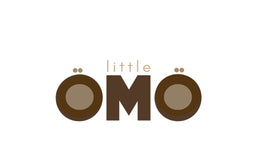7 Key Benefits of Puzzles for Kids

Puzzles have long been a staple in children's playrooms, and for good reason. These are simple games that offer a world of benefits for your child's cognitive, emotional, and social development. In this blog post, we'll delve into the exciting world of puzzles and explore how they can shape your child's growth in more ways than one.

Cognitive Development
Puzzles serve as miniature mental exercises for children, while navigating various puzzle challenges, they sharpen their problem-solving abilities. This process involves analysing pieces, identifying patterns, and deducing how they interlock - an aptitude that seamlessly transitions into real-life problem-solving as they mature. Furthermore, puzzles contribute to the development of spatial awareness, enabling children to grasp the intricate relationships between objects in their environment.
Fine Motor Skills
Hand-eye coordination is essential when it comes to piecing together those puzzle fragments. As your child manipulates and places puzzle pieces, they're refining their fine motor skills. This newfound dexterity is not only important for puzzles but also for tasks like writing, drawing, and even tying shoelaces.
Patience and Persistence
Life is full of challenges, and learning how to face them with patience and perseverance is a valuable skill, solving puzzles provides an excellent opportunity for children to practice these qualities. As they encounter difficulties and setbacks while attempting to complete a puzzle, they learn that success often requires patience and a willingness to keep trying. This valuable life lesson can be applied to various aspects of their future endeavours.
Critical Thinking
Critical thinking is another skill puzzle-solving fosters. Children learn to analyse and compare puzzle pieces, make decisions about where each piece belongs, and adapt their strategies if necessary. This process helps them develop sound decision-making skills and encourages a growth mindset, teaching them that persistence pays off.
Emotional and Social Development
Puzzles are not just solitary activities. They can be wonderful opportunities for bonding with family and friends. When kids collaborate on a puzzle, they learn to communicate effectively, share ideas, and work together towards a common goal. This social interaction is invaluable for their emotional development, teaching them patience, cooperation, and empathy.
Memory Improvement
Matching puzzle pieces and remembering patterns are essential aspects of puzzle-solving. When children engage in these activities, they strengthen their memory recall. They learn to recognise and remember shapes, colours, and patterns, which can be beneficial for academic subjects such as math and reading. Improved memory also aids in everyday tasks and learning new skills.
Social Skills
Puzzle-solving doesn't have to be a solitary activity. In fact, it can be a wonderful way to foster social skills in children. Collaborative puzzle-solving encourages teamwork and communication among peers. Children must work together to find the right pieces, share ideas, and solve problems collectively. This not only promotes positive social interactions but also teaches them how to collaborate effectively—a skill that will benefit them in various social contexts throughout their lives.
Puzzles are not just entertainment, they're powerful tools for your child's growth and development. By engaging with puzzles, children exercise their minds, refine their motor skills, and cultivate important cognitive and emotional abilities. So, the next time you see your child engrossed in a jigsaw puzzle, rest assured they're not just having fun—they're learning and growing in countless ways. Encourage their puzzle pursuits, and watch as they unlock the full potential of their brilliant minds.
Are you looking for a new puzzle to entertain your child, we have a variety of puzzles for you to browse here.






Sakuya -
Sakuya.in is one of best Puzzle Toys shop for kids.You can buy toys for kids online at https://sakuya.in